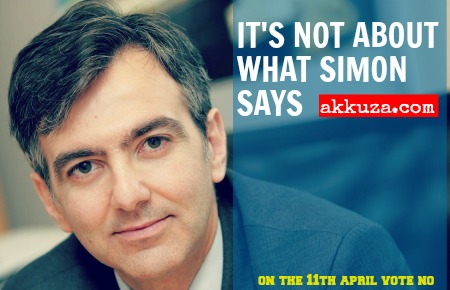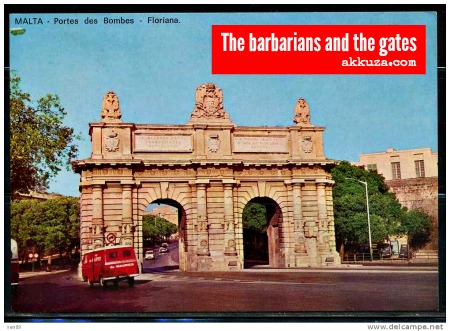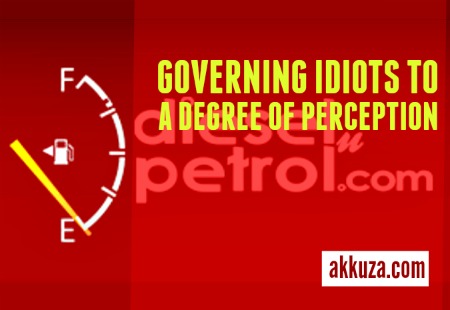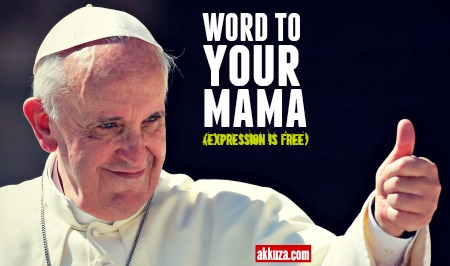
Diplomacy, they say, is the art of letting someone have it your way.
I rarely agree with Joseph Muscat and I don’t always agree with Simon Busuttil and when it comes to the referendum for the abrogation of the turtledove and quail hunting regulations I am in agreement with neither of them. It’s not so simple as a YES or NO vote though. The gigantic chessboard that was set in motion once the constitutional court found no objections to the petition for an abrogative referendum is full of diplomatic minefields, political manoeuvrings and vested interests. And notwithstanding the incredible murmur that hit the web once his press conference was over today it really is not at all about what Simon Says. Then what is it about?
It’s about hunting
In essence it should be. The aim of the referendum is an attempt to end spring hunting “once and for all”. That is what the NO camp hope to achieve. I have explained the technical reasons why the result of the referendum must be seen more as a political achievement than as a legally binding result. Put simply the more people vote for a ban on hunting the more the political parties who run the daily show will get a message (and a sort of protracted mandate) not to do anything to facilitate spring hunting again. At least for the time being. So what is needed is numbers. Big ones. It’s a vote with your feet moment. And that is where there might be the first problem. This is the first issue requiring a referendum about which lots and lots of people quite frankly don’t give a damn. It does not touch their pockets, there are no electricity bills to be lowered and probably they are more irritated by the whingeing of the “tree-hugging greens” than anything else. Is there a large enough section of the population who might bother to turn up at the polls simply because they hate the kind of bullies that rally behind a gun and a bullets on a protest in Valletta? Je ne suis pas convaincu.
It’s not about a derogation (really)
There is so much confusion on this point that even Simon Busuttil slipped on a nasty banana shortly after his press conference explaining his position. “I am voting for a derogation that WE negotiated” he said. No you are not Simon. Neither is Joseph for that matter. See, the “derogation we negotiated” that everyone is talking about is an altogether different derogation that was negotiated by the Fenech Adami government and concerned trapping. The derogation referred to in this referendum is the reason why we have the legal notice that some of us are now hoping to abrogate and it was not the result of negotiating skills of any pro-hunting Maltese. It is a mechanism that exists in the Birds Directive and – much to everybody’s chagrin – will continue to exist no matter how you vote and what the result is in the next referendum. If anything I had been hoping that Simon Busuttil would say that his position was in favour of a proper use of that derogation – as against the carte blanche interpretation that has most recently been given by Joseph Muscat’s government or as against the interpretation given by the Gonzi government in 2008 when arguing before the European Court of Justice. It was a chance for Simon to show a real change in attitude by one of the parties – no lies to suck up to the hunters -the simple truth: we will work on the derogation when the conditions exist to apply it. Given that those conditions are very strict and exceptional because they are set within a framework based on real conservation it might have even made many bird lovers happy while reassuring those who are still testing Simon that their new leader does not bow to the men with guns.
But it’s not about the parties
In the end though it should not be about the parties. As I said, the PLPN had long abrogated any idea of leadership in this field. Their track record is atrocious and anyone waiting to hear what the PL or PN had to say before making his mind up about what to vote for in the referendum would be absolutely off the plot. Joseph Muscat tried every trick up his sleeve in order to appease hunters. First we had the slackening of conditions for hunting, licensing for hunting etc. Then it was obvious he tried to avoid the possibility of a referendum as much as possible. Finally when the referendum became inevitable he hoped and hoped that he could get away with an isolated referendum away from Local Council elections. When that idea caused a ruckus and backlash he succumbed and threw in the Ace up his sleeve. He backed the YES vote personally and automatically had that translated as the official Labour Party position. Labour had reneged on its promise to keep out of the campaign and had been forced to back the hunters by its scheming leader who was still underwriting the cheques he had issued before the election. Muscat now had one more wish – that Simon turn this into a PL vs PN move in the hope that he could translate this into a double trashing: a victory for the hunters and a beating of Simon by default.
Which is where you can begin to see Simon Busuttil’s position from a newer, better perspective. First of all Simon was right to first wait for the party to take a position of its own. I would have preferred it to stop at that. Probably what happened next is the result of Labour’s trying to egg Simon into an open battle and to taint the referendum with yet another partisan war. Simon would have none of that. There was the danger that he would be labelled a fence-sitter (unfairly, if we agree that waiting for the people’s decision was the right thing to do). There was the problem of consistency – given how the PN’s position had not exactly been anti-hunting in the past. So Simon has opted for the stalemate insofar as Labour is concerned. He has chosen to neutralise the Labour vs PN battle by throwing in his personal opinion on the side of the derogation (admittedly he wrongly claimed this is the negotiated derogation).
It’s a smart move really because this turns the referendum into anything but PL vs PN. Busuttil has sacrificed the possibility of measuring his popularity to the hope that the voters think with their own mind and transform this into a battle of the people or civil society vs the establishment. I would have liked a clearer position with regards to what kind of spring hunting Simon Busuttil was committing himself in favour of but given the red and blue manner of thinking for which this electorate has been groomed, Simon’s “sacrifice” for the greater good of a clear non-partisan vote turns out to be admirable. The proof of the pudding will be whether Simon’s party will act like Labour and do its utmost for the YES vote to be carried or whether the PN will limit its pronouncements to today’s leader position and allow the people to decide.
It’s about a clear statement
Which brings me back to where I started. The most important factor in this result will be the statement of the people. This is an issue upon which both parties gunning for leadership of the country (pardon the pun) have long compromised their souls in the past. Theirs is not a position of vision. The true representative party will be the one that takes note of a referendum result and works upon that for the future of hunting. As I said, confusingly for many people, the derogation will still remain a possibility within the Birds Directive. How and why parties in government decide to make use of it (if at all) will depend on the clarity of the vote come 11th April. Only a resounding No will tie the hands of scheming politicians like Muscat or will give a clear mandate to Simon Busuttil in the future to use the derogation wisely and within the clear and strict conditions within which it is framed.
Go out there and vote clearly. The truth is that this referendum is about what you think and what you believe.
















